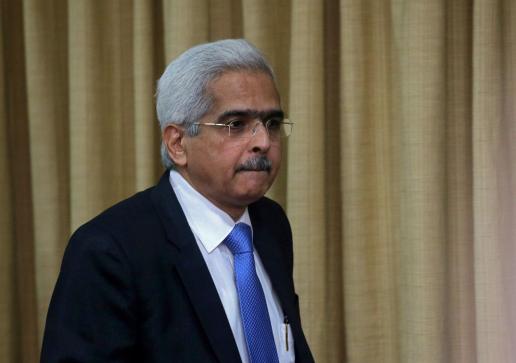Before India votes, RBI cuts rates by 25 basis points to spur growth

The Reserve Bank of India (RBI) cut its policy interest rate by 25 basis points on Thursday, in a widely expected move to boost the economy just a week before voting begins in an election that will decide whether Prime Minister Narendra Modi gets a second term.
Though inflation remains subdued, falling farm incomes and record high unemployment are seen hampering Modi's prospects going into the polls after economic growth slid to 6.6 percent in December - its slowest in five quarters.
Following a meeting of its monetary policy committee (MPC), the RBI highlighted the need to boost domestic growth due to global headwinds.
“The need is to strengthen domestic growth impulses by spurring private investment which has remained sluggish,” the RBI wrote in the policy statement.
The six-member MPC cut the repo rate to 6.00 percent as predicted by 57 of 67 analysts polled by Reuters last week. The reverse repo rate was reduced to 5.75 percent.
Four out of six MPC members voted for a 25 basis points cut, while two called for the rates to remain unchanged. Five of them called for the policy stance to remain “neutral,” while one MPC member voted for it to be changed to “accommodative”.
While the central bank projected retail inflation at 3.8 percent by January-March 2020 - within its target of 4 percent - it also warned of the upside risks to price pressures if food and fuel prices rose abruptly, or if fiscal deficits overshot targets. Ahead of elections, the major parties have made promises for heavy spending in order to woo voters, leaving the central bank unsure about how fiscal plans will pan out.
“Should there be a fiscal slippage...this could crowd out private investment, impact potential output, and result in higher inflation,” the RBI said in a separate monetary policy report.
Speaking at an industry event, Finance Minister Arun Jaitley said that the government would continue with fiscal consolidation and pursue policies to enable further reduction in interest rates if it was re-elected.
Meanwhile, weather forecasters have warned that this year's monsoon season could suffer the El Nino effect, which could reduce rainfall and lead to a spike in food prices.
“While RBI has highlighted the upside risks to inflation, on account of El Nino, food prices and the fiscal situation, I think the tone is largely dovish,” said Sujan Hajra, chief economist at Anand Rathi Securities in Mumbai.
“If inflation continues to undershoot the 4 percent level, a rate cut of 25 to 50 basis points cannot be ruled out in the next 12 months.”
Annual consumer inflation was just 2.57 percent in February following five months of deflation in food prices, and the RBI said it could be forced to revise down its inflation projection if the current economic slowdown become more pronounced.
The RBI lowered its economic growth forecast to 7.2 percent for the 2019/20 April-March fiscal year, from the February view of 7.4 percent.
With inflation so low, some analysts had hoped the RBI would cut interest rates more aggressively to boost economic growth.
The MPC's reluctance could be partly explained, however, by commercial banks only reducing their lending rates by a token 5-10 basis points after the RBI's last 25 bps cut in February.
